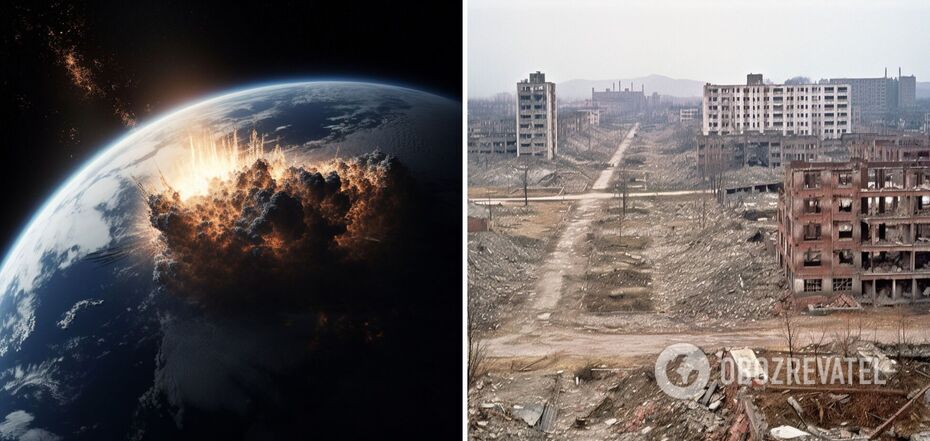Life
Horrific consequences of local nuclear war: decades of winter and famine are named
Even a relatively small regional nuclear war could cause global cooling, damage the Earth's ozone layer, and cause droughts that last for decades. A significant part of humanity could eventually die from crop failure and famine.
This is stated in a study by scientists published in the journal Earth's Future. Scientists call on the international community to weigh all the risks and initiate the destruction of all currently available nuclear weapons, the largest arsenal of which is owned by the aggressor country Russia.
In their study, the researchers modelled a nuclear war between two states that used 100 bombs equal to those dropped on Hiroshima against each other.
They found that the consequences of such a war could be catastrophic.
"Even a very small regional nuclear war on the other side of the planet could disrupt the global climate for at least a decade and destroy the ozone layer for decades," Michael Mills, lead author of the study and an atmospheric scientist at the National Center for Atmospheric Research in Colorado, told LiveScience.
Researchers predict that such a war would release about 5 million tonnes of black carbon into the atmosphere. This ash would absorb the sun's heat and cause the Earth to cool by 1.5 degrees Celsius, the lowest level in 1,000 years.
This will result in winters that will be 2.5-6 degrees Celsius colder and summers that will be 1-4 degrees Celsius colder across much of North America, Asia, Europe and the Middle East. Colder temperatures will lead to deadly frosts around the world, and will also reduce the period for plant growth and development by 10-40 days annually.
The ash in the atmosphere will also warm the stratosphere, leading to chemical reactions that will destroy the ozone. Problems with the ozone layer will lead to significantly more ultraviolet radiation reaching the Earth's surface: in summer, the level of ultraviolet radiation in mid-latitudes will increase by 30-80%, which poses a threat to human health, agriculture and ecosystems both on land and at sea.
Colder temperatures will also reduce global rainfall and other precipitation by around 10%. This is likely to trigger large-scale fires in regions such as the Amazon and lead to even more smoke in the atmosphere.
"Overall, these impacts would be very damaging to food production and ecosystems," Mills said.
Modelling has shown that a nuclear winter would last for more than 25 years.
Mills notes that these results "show that it is possible to trigger a global nuclear famine using only 100 of the smallest nuclear weapons".
Earlier, OBOZREVATEL also talked about the distance at which you can survive a nuclear explosion.
Subscribe to OBOZREVATEL's Telegram and Viber channels to keep up with the latest news.



























